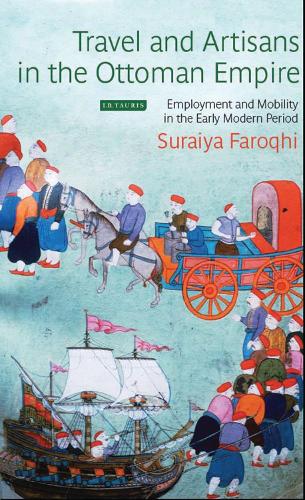
Travel and Artisans in the Ottoman Empire: Employment and Mobility in the Early Modern Era
(Paperback)
Publishing Details
Travel and Artisans in the Ottoman Empire: Employment and Mobility in the Early Modern Era
By (Author) Suraiya Faroqhi
Bloomsbury Publishing PLC
I.B. Tauris
8th July 2016
United Kingdom
Classifications
Tertiary Education
Non Fiction
Economic history
956.1015
Physical Properties
Paperback
320
Width 154mm, Height 234mm, Spine 26mm
440g
Description
It has often been assumed that the subjects of the Ottoman sultans were unable to travel beyond their localities - since peasants needed the permission of their local administrators before they could legitimately leave their villages. According to this view, only soldiers and members of the governing elite would have been free to travel. However Suraiya Faroqhi's extensive archival research shows that this was not the case. Pious men from all walks of life went on pilgrimage to Mecca, slaves fled from their masters and craftspeople travelled in search of work. Faroqhi shows that even those craftsmen who did not travel extensively had some level of mobility and that the Ottoman sultans and viziers, who spent so much effort in attempting to control the movements of their subjects, could do so only within often very narrow limits. Challenging existing historiography and providing an important new perspective, this book will be essential reading for students and scholars of Ottoman history.
Author Bio
Suraiya Faroqhi is Professor of History at Istanbul Bilgi University and Emerita Professor of Ottoman Studies at the Ludwig Maximilians Universitat in Munich. She is a renowned authority on Ottoman history and her previous publications include: The Ottoman Empire and the World Around It; Artisans of Empire: Crafts and Craftspeople Under the Ottomans and Subjects of the Sultan: Culture and Daily Life in the Ottoman Empire (all I.B.Tauris).
